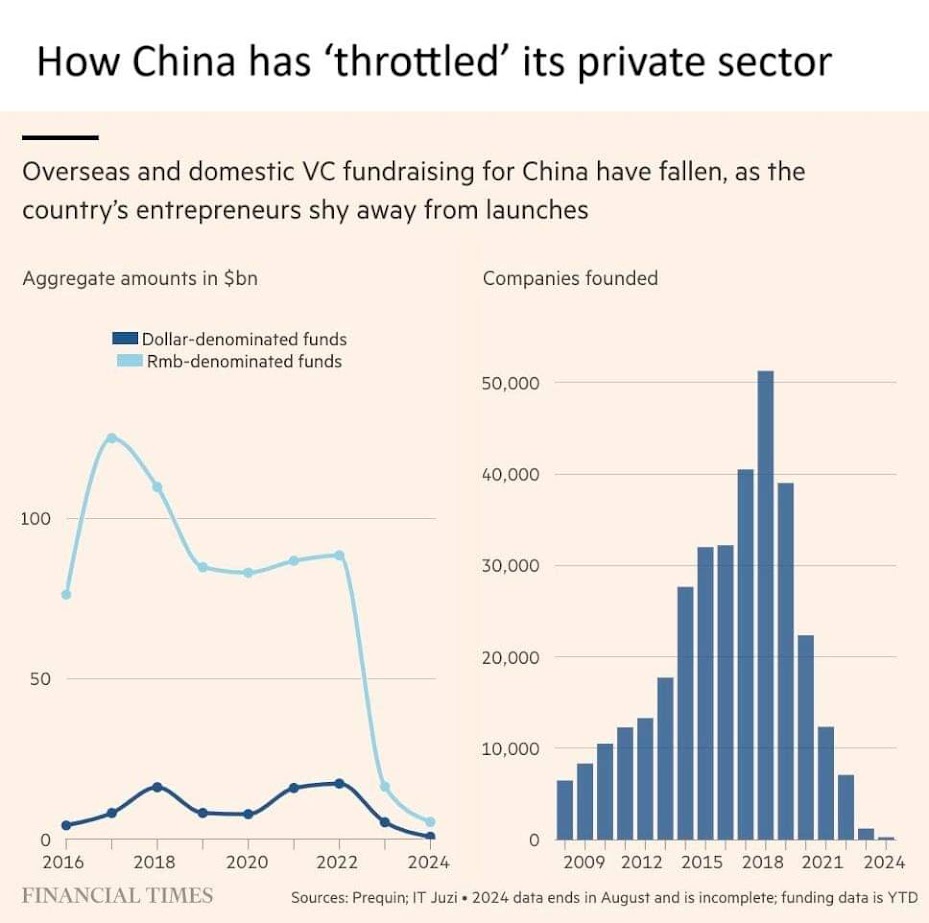The Surprising Shift in China’s Private Sector
For years, China’s private sector was a vibrant landscape filled with innovation, investment, and opportunity. At its peak, more than 50,000 companies were being launched each year, drawing in both domestic and overseas venture capital (VC). But as of today, this golden era has come to a screeching halt. The latest data shows fewer than 10,000 companies founded, a stark contrast to the booming numbers we saw just a few years ago.
From 50,000 to 1,000: What Happened?
It’s hard not to notice the sharp decline in the number of startups in China. In 2018, we witnessed the highest point of the startup ecosystem with over 50,000 new businesses emerging. Now, as we approach 2024, that number has dropped drastically. The reasons behind this decline are complex, but one of the major factors is fear.
Why Fear is Driving Innovation to a Standstill
In today’s China, investors and entrepreneurs face a unique challenge: government scrutiny. Venture capital firms are now accountable to government entities, having to explain why their investments didn’t yield the expected returns. And it’s not just about disappointing the government; there’s the very real fear of punishment. Investors who fail to bring in the desired returns risk “disappearing” or worse, being imprisoned.
The stakes are so high that many VCs are choosing to walk away rather than risk their personal freedom over a poor financial outcome. When fear controls investment, it’s no surprise that fewer companies are being founded. Entrepreneurs are avoiding the market, and VC firms are more reluctant to take chances. After all, how can innovation thrive in a climate where failure could cost you everything?
The Decline in VC Fundraising
Another clear indicator of China’s struggling private sector is the decline in both dollar-denominated and RMB-denominated funds. As seen in recent data, there has been a significant drop in fundraising since 2021, with RMB-denominated funds plummeting almost to zero. This is an alarming trend. Without proper funding, startups simply cannot survive.
Foreign investments, in particular, have slowed down to a trickle. The uncertainty surrounding China’s economic policies, combined with the aforementioned fears, have caused a major hesitation among international investors. The few who do continue to invest in China are doing so cautiously, focusing on safer, less innovative ventures.
A Grim Future for China’s Private Sector?
As we move into 2024, it’s clear that China’s once-booming private sector is under threat. With the number of startups shrinking and venture capital drying up, the future of innovation in the country looks bleak. The entrepreneurial spirit that once drove China’s economic growth has been stifled by fear and governmental control.
This shift is not just worrying for the Chinese economy but for global markets as well. China has long been a key player in the world of startups, and its decline could have far-reaching effects on industries worldwide.
Can Things Turn Around?
There’s no doubt that the Chinese government has the power to change this course. By loosening its grip on the private sector and allowing investors more freedom to take risks, the startup ecosystem could once again flourish. However, without these changes, it’s hard to imagine a scenario where China’s entrepreneurial spirit makes a full recovery.
Until then, the fear of failure – not just financial, but personal – will continue to cast a long shadow over China’s once-promising private sector.
Read the article: “The Surprising Rise of UnionPay in Global Payments”


Leave a Reply
You must be logged in to post a comment.